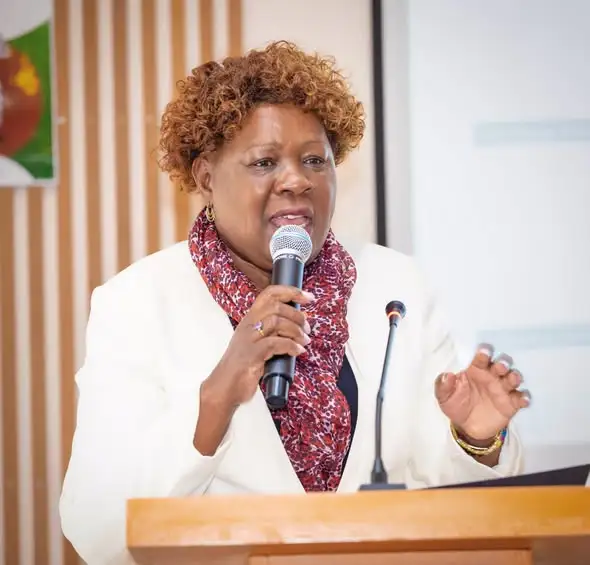Cabinet Secretary for Lands, Public Works, Housing and Urban Development, Alice Wahome, has urged Kenyans to seek solutions to land boundary disputes through land registrars rather than the courts.
Speaking during a two-day development tour of Nakuru, Nyandarua, and Laikipia counties, the CS said turning to registrars would ease court congestion and provide quicker resolutions.
“Kenyans must understand that boundary disputes are not resolved by courts. The quickest way to address this is to visit your local registrar, discuss your problem with them, and allow the registrar to ascertain which parcels interact with your land,” Wahome said.
She emphasized that courts should only serve as a last resort, particularly in situations where registrars delay handling disputes. “The law allows the registrar to resolve a land boundary dispute; it is not a court matter. Get these cases out of court and go back to the registrar. If you require a court order to compel the registrar, who is not acting swiftly, you can obtain that, and the registrar will be ordered to take immediate action,” she added.
Wahome also raised concerns over encroachment at Lake Naivasha, particularly in Kihoto, where individuals are alleged to have obtained questionable titles on riparian land. She revealed that the Ministry would involve the Director of Survey to verify legitimate cases and determine whether the properties fall within protected areas.
In addition, the CS directed land registry officials to strengthen revenue and fee collection, citing stamp duty as a critical contributor to the national budget. She stressed that all collections must be fully remitted to government coffers to support priority sectors such as education and infrastructure.
Wahome began her tour at the Naivasha Lands Registry, underscoring the importance of understanding operational challenges on the ground as part of efforts to enhance service delivery. Her engagements, she noted, were intended to evaluate both the successes achieved and the hurdles facing land offices across the country.
The Lands CS’s call is expected to ease the backlog in courts and empower registrars to take a more central role in resolving long-standing land disputes.

